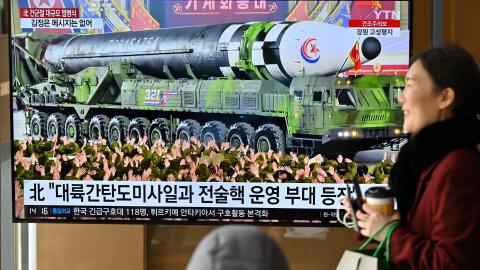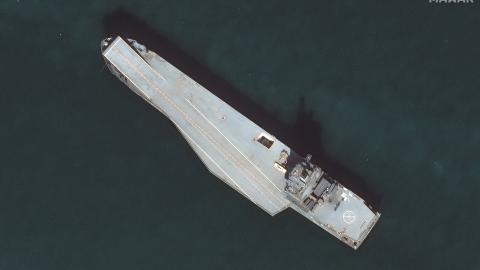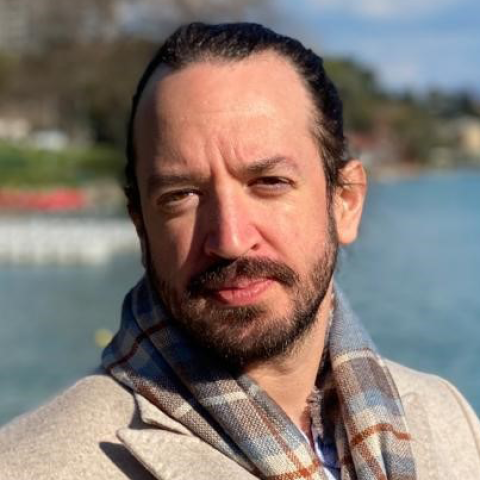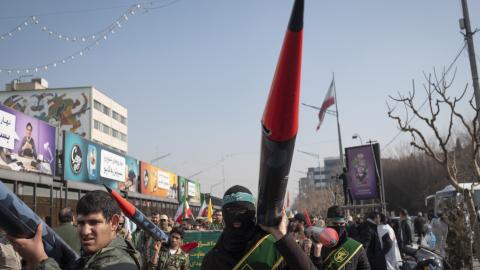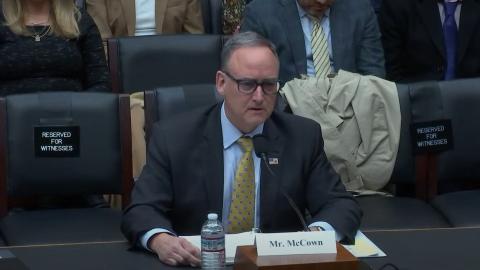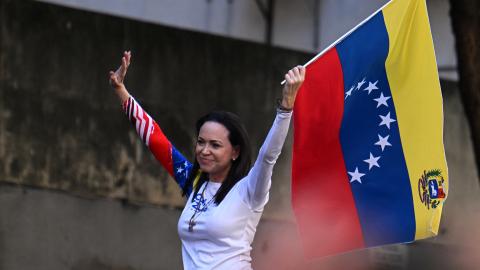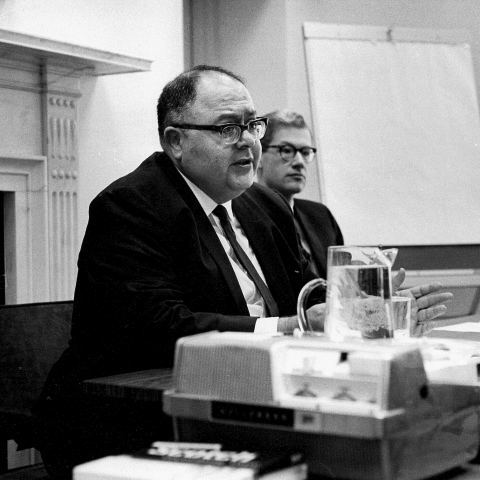President Biden has warned that Russia is beginning a military invasion of Ukraine and that the United States will now respond with a round of narrow sanctions targeting two Russian banks and some Russian elites. In addition, the United States will move 800 soldiers and up to eight F-35 fighter jets and 32 attack helicopters to the Baltic region and Poland, with the ostensible goal of reassuring our nervous European allies and deterring Russia from attacking NATO countries.
In announcing these moves, Biden mostly said the right things about Putin’s hysterical and meandering speech earlier this week. But the gap between his rhetoric and the weakness of the moves themselves is striking. A clear-eyed assessment of the situation would dictate a response with much more force: sanctions with true bite to them and rapid hard-power deployments to Poland and the Baltic nations.
There are two influential and competing views of Russia’s motives in the ongoing Ukraine crisis.
The first view is that Putin is not so much a Soviet ideologue as he is a czar-like leader seeking to retake Ukrainian territory that he sees as rightfully “Mother Russia’s.” Those who hold this view tend to think that Putin’s claims to the Ukrainian regions of Donetsk and Luhansk are reasonable and finite, and that the smart course of action is, in essence, to let him have his way so that tensions can cool, and the world can get back to some semblance of normalcy. They also believe that Putin understands his own limits and will not be so foolish as to mount a direct military challenge to the NATO alliance.
It is the second view, however, that’s better supported by the evidence and should inform what the Biden administration does next. This view holds that Putin is waving the “Mother Russia” flag while signaling that he’ll take as much territory as the United States and NATO allies will let him take — that in reality, his ambitions go far beyond protecting ethnic-separatist enclaves within Donetsk and Luhansk. In this view, Putin is a belligerent former KGB officer who believes that the collapse of the Soviet Union was the greatest geopolitical catastrophe of the 20th century — a catastrophe he now seems poised to try to undo.
The signals being publicly sent by Putin’s regime support this second view. In his long and winding speech on Monday, Putin did not set hard boundaries around his aims. He called the Ukrainian nation-state a myth created by the weak Mikhail Gorbachev, who he claimed “gave” Ukraine — which rightfully belongs to the Russian people — away.
In a briefing with journalists on Tuesday, Kremlin spokesman Dmitry Peskov added to the evidence that Russia is not looking to deescalate the crisis after officially moving troops into the so-called Donetsk People’s Republic and Luhansk People’s Republic:
CNN: Regarding the recognition of the sovereignty of the DNR and LNR, tell me, are we talking about recognizing them in their current, de facto borders or within the borders of the entire Luhansk and Donetsk regions? As we understand it, these are a bit different.
Dmitry Peskov: Within the borders that they have proclaimed themselves.
CNN: Proclaimed at what point?
Peskov: Well, when these two republics were proclaimed.
Bloomberg: Can you elaborate on this issue?
Peskov: No, I have nothing to add.
Ekho Moskvy: Do these borders include Mariupol, for example?
Peskov: I have nothing to add to this. Within the borders in which they exist and have been proclaimed.
Ekho Moskvy: In which they exist or were proclaimed?
Peskov: Well, in which they were proclaimed and exist.
Ekho Moskvy: Meaning, within the current borders?
Peskov: I have nothing to add to this.
BBC News: Can you clarify? I don’t quite understand: Will the recognition of the people’s republics mean the borders that exist now or those that they’ve proclaimed themselves?
Peskov: Within the borders in which these republics were proclaimed.
BBC News: In 2014? Meaning, the entire Donetsk and Luhansk regions?
Peskov: In this case, I’ve said everything I can on this subject.
There is a real possibility that Russia will occupy Ukrainian territory beyond the pro-Russia separatist enclaves, Ukraine will defend itself with force, and Russia will then use Ukraine’s legitimate response as a pretext to launch a much wider military offensive. In this scenario, the odds of a war spreading outside Ukraine’s borders and into a NATO country increase quite a bit, even if a larger conflict is not what Putin explicitly intends.
In the heat of battle, Russian warplanes could invade the airspace of Poland or Romania, which would elicit NATO escorts. Russian pilots could misperceive the escorts as offensive NATO warplanes and engage them, precipitating a disaster with unknown consequences. There’s also the chance that Russians, in the fog of war, could attack NATO members involved in the alliance’s efforts to provide arms and other logistical support to Ukraine. It doesn’t take much to imagine many other nightmare scenarios. And, given Putin’s unhinged speech about the myth of Ukraine and the disaster of the fall of the Soviet Union, he might see such “unintended consequences” as presenting an opportunity to take what he genuinely and erroneously believes belongs to the Russian people.
The second view, including the possibility of a war spreading beyond limited parts of Ukraine, is the one supported by the overwhelming evidence, and the one President Biden outlined and purports to hold. But the actions of the Biden administration are ones we would expect from someone who holds to the first view — incremental and mostly harmless sanctions intended to encourage Putin to deescalate the conflict after achieving modest territorial gains in eastern Ukraine.
The Biden administration should instead match its actions with its rhetoric. It should insist that Germany permanently nix the Nord Stream 2 pipeline. It should seriously bolster the hard-power defenses of Poland, Romania, and the Baltic nations right away. It should announce that it will no longer consider a moratorium on placing American ground-based strike systems in Europe, and immediately ramp up production of such weapons and open talks with the Polish government about basing them on Polish soil. And it should levy truly painful sanctions on Russia of the sort that have been thus far reserved for rogue states such as Iran.
During this crisis, the Biden administration has repeatedly warned the world that Europe is on the cusp of a calamity. Now is the time to implement a major shift in U.S. policy, lest that calamity come to pass.
Read in National Review
